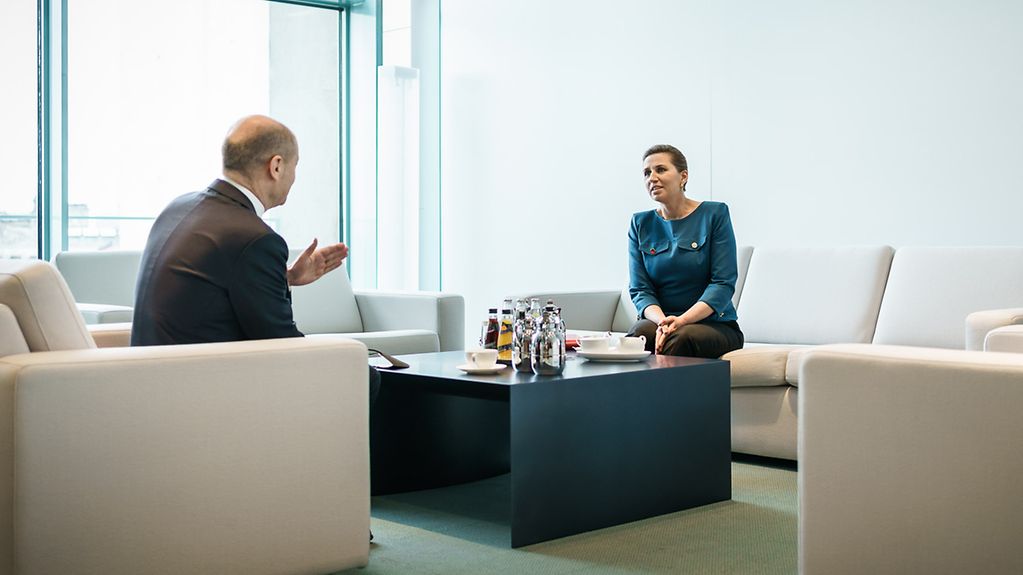Danish Prime Minister in Berlin
The situation on the Ukrainian border, the coronavirus pandemic and climate protection – Federal Chancellor Scholz and Danish Prime Minister Frederiksen discussed a wide range of issues in Berlin. The two countries agreed that the dual strategy towards Russia should be continued, the Federal Chancellor stressed.
2 min reading time

Federal Chancellor Scholz received Denmark’s Prime Minister Frederiksen for talks at the Chancellery.
Photo: Bundesregierung/Denzel
The two leaders had had thorough talks on “very serious security policy issues”, Federal Chancellor Scholz stressed after his meeting with Danish Prime Minister Mette Frederiksen. The main focus was on the Ukraine crisis and how to continue to deal with Russia.
“We know that this is a very difficult situation,” said Scholz, referring to the many soldiers deployed by Russia in the border area near Ukraine. There was agreement that the dual strategy towards Russia should be continued, said Scholz. This approach included clearly establishing a “willingness to engage in dialogue at all levels and in all possible forums so as to enable a political solution” – bilaterally, through NATO and the OSCE, and also under the Normandy format.
Aggression would have serious consequences
On the other hand, it was important to be able to take action in the event of military aggression on part of Russia, said Scholz. “Together, we are making it very clear to Russia that there would be serious consequences if there were any aggression,” the Federal Chancellor reiterated. He welcomed the fact that Germany and Denmark were jointly advocating this position as close EU and NATO partners.
Great potential for cooperation on issues of the future
In addition to security policy, the talks with Prime Minister Frederiksen also touched on key issues for the future – “where we see great potential for joint cooperation”, as Scholz put it. One of these was the matter of a faster train connection between the two countries, which was now being addressed, he said.
Coronavirus pandemic: Federal Chancellor impressed by Denmark
The two countries had also cooperated well in dealing with the coronavirus pandemic, said the Federal Chancellor. “I’m impressed with Denmark’s high vaccination rate,” said Scholz, at the same time calling on citizens in Germany to get vaccinated, too.
Shared ambition in the area of climate protection policy
The two countries had great ambitions when it came to the expansion of renewable energies and conversion of the economy and industry to carbon neutrality, said Federal Chancellor Scholz. “We’re neighbours and we have similar ideas with regard to technology, so we feel confident we will be able to move things forward together – and this is precisely what we intend to do.”
The implementation of the European Commission’s Fit for 55 plans and the idea of an international Climate Club as an association of countries with ambitious climate protection goals were important European policy projects, said the Federal Chancellor, adding that he was pleased that Denmark supported this project.